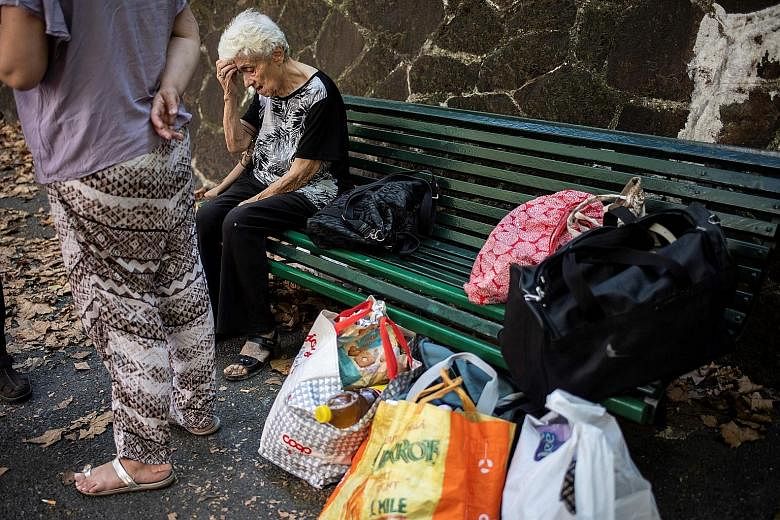MILAN • Italy's anti-establishment government, outraged at the deadly collapse of a 50-year-old bridge, has presented the disaster as a warning to Brussels to give it more leeway to upgrade the country's ageing infrastructure.
But the political anger generated by Tuesday's tragedy in Genoa, in which at least 38 people died, could instead end up piling even more financial pressure on the state - from nervous holders of its €2 trillion (S$3.1 trillion) in bonds.
Within hours of the viaduct giving way and sending vehicles plummeting, Deputy Prime Minister Matteo Salvini said the European Union must allow Rome to include in its next budget all the funds needed to ensure the country's infrastructure was safe.
Mr Salvini said Italy's Civil Protection Department estimated that at least €40 billion was needed to improve the country's defences against events such as floods or landslides.
Any investment, to be calculated after an emergency audit of bridges and tunnels nationwide, comes on top of plans by the 21/2-month-old government to spend tens of billions of euros on tax cuts, easing pension rules and a basic income for the poor.
It also wants to avoid triggering a planned rise in value-added tax, agreed with Brussels by the previous government to meet budget goals.
For Italy's creditors, the fiscal gap is a growing worry.
A sell-off sent Italian bond yields rising sharply on Wednesday morning after Mr Salvini used the bridge disaster to question EU limits on Italy's deficit. The bonds later rallied but their yields continued yesterday to offer a historically high premium over safer German debt.
Economics professor Gustavo Piga of Rome's Tor Vergata University said that regardless of EU rules, Rome had not always demonstrated that infrastructure was at the top of its agenda.
"Italy sorely needs higher and better public investments but they haven't been a priority for politicians in recent years," Professor Piga said, noting that the previous administration had even appeared to divert some funds away from infrastructure after winning some budgetary leeway from Brussels for investments.
Total investment and maintenance spending on Italian transport infrastructure fell by 58 per cent between 2008 and 2015, according to data by the Organisation for Economic Cooperation and Development.
But more money could have been invested, according to an Italian central bank analysis last year. As overall public investment in Italy fell 35 per cent in real terms between 2007 and 2015, Rome hiked spending on everyday things like public salaries and pensions by 7 per cent.
The European Commission also sent a reminder on Wednesday that it had for some time been encouraging the ruling coalition in Rome to prioritise infrastructure spending.
The commission, the EU's executive, said it had approved in April an €8.5 billion investment plan for Italian motorways, including in the Genoa region, under EU state aid rules.
Italy is also set to receive around €2.5 billion in European funds between 2014 and 2020 to invest in network infrastructure, such as roads or rail, the commission added.
Prime Minister Giuseppe Conte on Wednesday declared a 12-month state of emergency in and around Genoa, with €5 million of funds going into recovery work.
Engineering professor Antonio Brencich of Genoa University told state television the bridge had been shown to be defective just two decades after it was built - a comment backed by anecdotal evidence from those who lived below it.
"In the 1980s, pieces of cement came down and ruined parked cars, and there was a procedure - you filled out a form to claim compensation for the repairs," said Mr Salvatore Lorefice, 58, a pensioner who worked at a warehouse directly under the bridge.
REUTERS, AGENCE FRANCE-PRESSE

